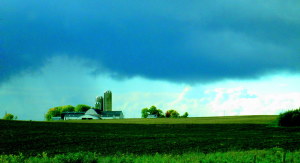
October 30
_______________________________________
PRAYER AGAINST THE ENEMY’S SCHEMES
Contend, LORD, with those who contend with me;
Fight against those who fight against me.
2 Take hold of buckler and shield
And rise up as my help.
3 Draw also the spear and [the battle-axe to meet those who pursue me;
Say to my soul, “I am your salvation.”
4 Let those be ashamed and dishonored who seek my life;
Let those be turned back and humiliated who devise evil against me.
5 Let them be like chaff before the wind,
With the angel of the LORD driving them on.
6 Let their way be dark and slippery,
With the angel of the LORD pursuing them.
7 For they hid their net for me without cause;
Without cause they dug a pit for my soul.
8 Let destruction come upon him when he is unaware,
And let the net which he hid catch him;
Let him fall into that very destruction.- Psalm 35:1-8
________________________________________
According to enduringword.com, this psalm is simply titled A Psalm of David. This is one of what are commonly known as the Imprecatory Psalms, which in strong terms ask God to defeat and destroy the enemies of His people. As you read through the book of Psalms, the Imprecatory Psalms become more intense. Psalm 7 is perhaps the mildest, while some count at least 30 curses in Psalm 109. It is difficult to assign this psalm to any particular period of David’s life. However, the phrasing of Psalm 35:1a is similar to what David said to Saul in 1 Samuel 24:15, so it may be linked to the period of David’s life when Saul pursued him. In the first few verses of this psalm, David asks God to fight for him against his enemies. It is interesting how David gives God suggestions how to attack his enemy for him. He is even saying to God to tell his soul “I am your salvation in verse 4. Why would a man ask his own God such detailed things? Because David has a long intimate relationship with God, He knows very well that God would be true to His promises for deliverance to those who are faithful to him. It is where he gets confidence.
________________________________________
REFLECTION
• Do you think it was wrong of David to tell God what to do with his enemies? Why?
Monthly Archives: October 2020
GIVE THANKS TO THE GOD OF HEAVEN ILMA’S VLOG
 October 29
October 29
________________________________________
GIVE THANKS TO THE GOD OF HEAVEN
Who remembered us in our lowliness,
For His faithfulness is everlasting,
24 And has rescued us from our enemies,
For His faithfulness is everlasting;
25 Who gives food to all flesh,
For His faithfulness is everlasting.
26 Give thanks to the God of heaven,
For His faithfulness is everlasting. – Psalm 136:23-26
________________________________________
This psalm is written to enumerate the various things that God delivers us from and for all the provision that He has showered us with. Enduringword.com gives us some commentaries on these psalms. The song makes a sharp yet skillful transition from God’s great wonders of the past to His faithful help in the present. It is good for us to look to the past for evidence that His mercy endures forever, but even better for us to see the evidence in our own day.
KIdner comments on this part of the psalm: “After all, ‘his steadfast love endures forever’, and the refrain is designed to show the relevance of every act of God to every singer of the psalm.” Spurgeon says “Sin is our enemy, and we are redeemed from it by the atoning blood; Satan is our enemy and we are redeemed from him by the Redeemer’s power; the world is our enemy, and we are redeemed from it by the Holy Spirit.”
Spurgeon suggested many things that Psalm 136 as a whole teaches:
· The past, present, or future will not end His mercy.
· The storms of life will not end His mercy.
· Distance from loved ones will not end His mercy.
· Death itself will not end His mercy.
· God’s never-ending mercy should make us merciful to others.
· God’s never-ending mercy should make us hopeful for others.
· God’s never-ending mercy should make us hopeful for ourselves.
Shouldn’t our gratitude also be everlasting as much as God’s faithfulness is? Giving thanks to the God of heaven is the only way we could respond to God’s everlasting faithfulness.
Without gratitude, we cannot praise the Lord and remember his unfailing love.
________________________________________
REFLECTION
• How can gratitude to God change our attitudes in life?
PSALM 136 THE GOD WHO DELIVERS ILMA’S VLOG

>October 27
________________________________________THE GOD WHO DELIVERS
To Him who smote the Egyptians in their firstborn,
For His lovingkindness is everlasting,
11 And brought Israel out from their midst,
For His lovingkindness is everlasting,
12 With a strong hand and an outstretched arm,
For His lovingkindness is everlasting.
13 To Him who divided the Red Sea asunder,
For His lovingkindness is everlasting,
14 And made Israel pass through the midst of it,
For His lovingkindness is everlasting;
15 But He overthrew Pharaoh and his army in the Red Sea,
For His lovingkindness is everlasting. – Psalm 136:10-15
________________________________________
According to a commentary on enduringword.com, the previous psalm mentioned the deliverance from Egypt and the striking of the firstborn (Psalm 135:8-9). Here again God is praised as the One who rescued Israel from their slavery and degradation in Egypt-another expression of His never-ending mercy. The singer recounted God’s great wonders flowing seamlessly from the work of creation described in Genesis 1 to the work of deliverance described in Exodus. We rightly regard (or should regard) the Exodus account as historical, describing what really happened. Therefore, the context and flow of this psalm demonstrates that what God described in Genesis 1 really happened. The psalmist does not treat them differently, as if one were a legend and the other actual history. God did not only bring the Israelites out of Egypt, but He also delivered them from Pharaoh’s attempt to re-capture them. In mercy to Israel, God overthrew Pharaoh and his army in the Red Sea. God’s use of history in this psalm is important. As in countless other places in the Scriptures, God used His work in the past to give hope, faith, and confidence to His people both for the moment and for the future.
It is necessary for all believers to recount all that God has done for them so that they will be focused on his lovingkindness that is overflowing. By constantly remembering such mercies and grace, we begin to have that love for what is right and for praising God for all that He continually showers us with.
________________________________________
REFLECTION
• Why is history important to magnify God’s wondrous works and miracles?
GOD’S LOVINGKINDNESS IS EVERLASTING ILMA’S VLOG

October 26
________________________________________
GOD’S LOVINGKINDNESS IS EVERLASTING
Give thanks to the LORD, for He is good,
For His lovingkindness is everlasting.
2 Give thanks to the God of gods,
For His lovingkindness is everlasting.
3 Give thanks to the Lord of lords,
For His lovingkindness is everlasting.
4 To Him who alone does great wonders,
For His lovingkindness is everlasting;
5 To Him who made the heavens with skill,
For His lovingkindness is everlasting;
6 To Him who spread out the earth above the waters,
For His lovingkindness is everlasting;
7 To Him who made the great lights,
For His lovingkindness is everlasting:
8 The sun to rule by day,
For His lovingkindness is everlasting,
9 The moon and stars to rule by night,
For His lovingkindness is everlasting.- Psalm 136:1-9
________________________________________
According to an internet sources, this psalm, extremely similar to Psalm 135, closes the Great Hallel. Unique to all the psalms, Psalm 136 uses the antiphonal refrain “For His loving-kindness is everlasting” after each stanza, perhaps spoken by the people in responsive worship. The author and occasion remain unknown.
Verse 1 declares the goodness of the Lord and his lovingkindness that is everlasting. Verse 2 praises God’s sovereignty and power over all other gods. He is incomparable to any other gods. In the third verse, Lord of lords is the attribute that is praised. He is Master of all masters. Verse 4 exults his creation and miracles. He is the only one who can create out of nothing and with Him all things are possible. Verse 5 reiterates verse 4 but explains how creative God is. He makes all things beautiful. In verses 6 -9, the author talks about how God placed boundaries in His creation and how He has placed order in all the things He has made.
________________________________________
REFLECTION
• Why should all believers reflect on God’s lovingkindness daily?
PLEA FOR DELIVERANCE AND FOR GOD’S LOVINGKINDNESS ILMA’S VLOG
 October 25
October 25
________________________________________PLEA FOR DELIVERANCE AND FOR GOD’S LOVINGKINDNESS
All this has come upon us, but we have not forgotten You,
And we have not dealt falsely with Your covenant.
18 Our heart has not turned back,
And our steps have not deviated from Your way,
19 Yet You have crushed us in a place of jackals
And covered us with the shadow of death.
20 If we had forgotten the name of our God
Or extended our hands to a strange god,
21 Would not God find this out?
For He knows the secrets of the heart.
22 But for Your sake we are killed all day long;
We are considered as sheep to be slaughtered.
23 Arouse Yourself, why do You sleep, O Lord?
Awake, do not reject us forever.
24 Why do You hide Your face
And forget our affliction and our oppression?
25 For our soul has sunk down into the dust;
Our body cleaves to the earth.
26 Rise up, be our help,
And redeem us for the sake of Your lovingkindness.- Psalm 44:17-26
________________________________________
In this psalm, the author pleads God to act and end their misery in the hands of the enemy. In verse 17, he declares that the people of God have not forgotten Him and in verse 18, reiterates their faithfulness to Him. In verse 19, we hear the voice of humankind’s limited understanding why God allows suffering in the hands of the enemy. In verse 20-21, the psalmist clearly knows his God. He knows that God sees everything and yet he is baffled why God has not followed through with his faithfulness to deliver them from the hands of their enemy’s cruelty. In verse 22, he tells God about the persecution being done to God’s people and in verse 23, he pleads God to rise up to deliver them from such sufferings. Many Christians forget that suffering is part of being a true disciple. Without it, we will not learn to endure and grow our faith.
________________________________________
REFLECTION
• Why is it hard for many of us to understand the concept behind suffering?
BRINGING TO GOD ALL AFFLICTIONS ILMA’S VLOG
 October 24
October 24
________________________________________BRINGING TO GOD ALL AFFLICTIONS
But You have saved us from our adversaries,
And You have put to shame those who hate us.
8 In God we have boasted all day long,
And we will give thanks to Your name forever.
9 Yet You have rejected us and brought us to dishonor,
And do not go out with our armies.
10 You cause us to turn back from the adversary;
And those who hate us have taken spoil for themselves.
11 You give us as sheep to be eaten
And have scattered us among the nations.
12 You sell Your people cheaply,
And have not profited by their sale.
You make us a reproach to our neighbors,
A scoffing and a derision to those around us.
14 You make us a byword among the nations,
A laughingstock among the peoples.
15 All day long my dishonor is before me
And my humiliation has overwhelmed me,
16 Because of the voice of him who reproaches and reviles,
Because of the presence of the enemy and the avenger.- Psalm 44:7-16
________________________________________
This psalm is about Israel’s complain to God. In verses 7-9, the writer declares how God has rescued and deliver his people. They were given victory over their enemies but in verse 9, he also says how God has brought them dishonor and have left them. In verse 10, the writer is aware that it was God who was punishing them because they have been oppressed by their enemies. In verse 11, he further gives us a clear picture how they are likened to sheep, to be eaten and have been dispersed in many different places. Verses 12-14 are more grumbles about the mocking by the enemy and how they were criticized and belittled and laughed at. In verse 15, we hear the humiliation that the Israelites suffered from their enemies. Clearly, the psalmist runs to God for comfort and deliverance. Despite their turmoil, they still find time to go to God. Do we still do this?
________________________________________
REFLECTION
• How often do you run to God when you are undergoing much suffering?
YOU ARE MY KING, O GOD ILMA’S VLOG
 October 23
October 23
________________________________________
YOU ARE MY KING, O GOD
O God, we have heard with our ears, our fathers have told us
The work that You did in their days, in the days of old.
2 You with Your own hand drove out the nations; then You planted them;
You afflicted the peoples, then You spread them abroad.
3 For by their own sword they did not possess the land,
And their own arm did not save them,
But Your right hand and Your arm and the light of Your presence,
For You favored them. 4 You are my King, O God; command victories for Jacob.
5 Through You we will push back our adversaries;
Through Your name we will trample down those who rise up against us.
6 For I will not trust in my bow, nor will my sword save me. – Psalm 44:1-6
________________________________________
As with Psalm 42, this psalm is titled To the Choirmaster. A Contemplation Of the sons of Korah. These sons of Korah were Levites, from the family of Kohath. By David’s time it seems they served in the musical aspect of the temple worship (2 Chronicles 20:19). Psalm 44 speaks of the nation of Israel in a season of great defeat, calling out to God for rescue. Some have thought it to be a psalm of the exile period or even afterwards in the days of the Maccabees. Yet there is reason enough to keep this psalm in the days of Israel’s monarchy.
The psalmist recalls all that God has done for his people as was told to him by his ancestors. He is reminiscing God’s hand in the deliverance of their families and nation. In verse 3, the author gives credit to God for it is in His hands that their forefathers were redeemed. He declares that only God has the power to give them victory as He has given Jacob such triumph over the enemies. How many Christians pay tribute to God for all that they were delivered from? It is sad to watch how many people have forgotten to give God all the glory. Instead, many of us would take credit for what only God can do. In verse 2, the psalmist declares that it was also God who afflicted the people and spread them abroad. You may be thinking how God can bring afflictions to His own people. We will never understand God’s ways, but He always has a good purpose for what He allow to happen. In verse 3, the author acknowledges that it was also God who gave them favor. God is sovereign and He is the greatest of all kings.
________________________________________
REFLECTION
• How should you treat and pay tribute to King Jesus? Why do we forget to do this?
SEARCH ANY HURTFUL WAY IN ME, O GOD

October 22
________________________________________
SEARCH ANY HURTFUL WAY IN ME, O GOD
O that You would slay the wicked, O God;
Depart from me, therefore, men of bloodshed.
20 For they speak against You wickedly,
And Your enemies take Your name in vain.
21 Do I not hate those who hate You, O LORD?
And do I not loathe those who rise up against You?
22 I hate them with the utmost hatred;
They have become my enemies.
23 Search me, O God, and know my heart;
Try me and know my anxious thoughts;
24 And see if there be any hurtful way in me,
And lead me in the everlasting way. -Psalm 139:19-24
________________________________________
In this psalm, David declares God’s protection in verse 19. O that God would slay the wicked! Even though we can’t see what God does to protect us when we are being attacked, it doesn’t mean that He doesn’t shield us.
It is amazing how God created our bodies to be able to recognize what may mean us harm, so we can flee from it. In psychology, they call it the fight or flight response. According to and internet source, the fight-or-flight response, also known as the acute stress response, refers to a physiological reaction that occurs in the presence of something that is terrifying, either mentally or physically. The response is triggered by the release of hormones that prepare your body to either stay and deal with a threat or to run away to safety. The term ‘fight-or-flight’ represents the choices that our ancient ancestors had when faced with danger in their environment. They could either fight or flee. In either case, the physiological and psychological response to stress prepares the body to react to the danger. Psychology says that it is something in our bodies that make us recognize such danger, David says that it is God’s miracle in his creation of humanity. God has equipped us all to be able to face or avoid attacks from the enemy. Whether we recognize it or not, He has given us this ability to save ourselves from such situations.
David asks God to examine his thoughts and heart in verse 23-24. Do we invite God in our lives as he does? Do we even come to God to acknowledge Him of His gift of protection?
________________________________________
REFLECTION
• How can we develop the habit of examining our hearts if we are being hurtful?
HOW PRECIOUS ARE YOUR THOUGHTS OF ME!
 October 21
October 21
________________________________________HOW PRECIOUS ARE YOUR THOUGHTS OF ME!
For You formed my inward parts;
You wove me in my mother’s womb.
14 I will give thanks to You, for I am fearfully and wonderfully made;
Wonderful are Your works,
And my soul knows it very well.
15 My frame was not hidden from You,
When I was made in secret,
And skillfully wrought in the depths of the earth;
16 Your eyes have seen my unformed substance;
And in Your book were all written
The days that were ordained for me,
When as yet there was not one of them.
How precious also are Your thoughts to me, O God!
How vast is the sum of them!
18 If I should count them, they would outnumber the sand.
When I awake, I am still with You. – Psalm 139:13-18
________________________________________
In this psalm, we hear David declare God’s magnificent work of creating man. For you formed me in my inward parts and wove me in my mother’s womb is a picture of how God watches every aspect of our being. He made sure that we are wonderfully made and also full of fear and awe of Him. When David says that “My frame was not hidden from You in verse 15, he declares that God’s omniscience and omnipresence. Even though we humans were made in secret inside our mother’s womb, it is not hidden from God. God sees all the details of our unformed substance even before we were born. He has written our names in His book of life and considers us his prized possession. Only God sees us as precious and only those who are in Him can we see how He values all of the jewel of His creation. His thoughts are wonderful and his love for us is unfathomable.
No wonder Satan does his best to destroy these precious and wonderful thoughts God has for all those whom He loves. The enemy twists these loving thoughts into lies about our identities. God wants us to never believe such lies because it keeps us in bondage. He wants us to know how much we are loved that’s why He gave us His only Son.
________________________________________
REFLECTION
• How precious are your thoughts of God? Is it as valuable as He thinks of you?
DARKNESS AND LIGHT ARE ALIKE TO YOU ILMA’S VLOG
 October 20
October 20
________________________________________
DARKNESS AND LIGHT ARE ALIKE TO YOU
Where can I go from Your Spirit?
Or where can I flee from Your presence?
8 If I ascend to heaven, You are there;
If I make my bed in Sheol, behold, You are there.
9 If I take the wings of the dawn,
If I dwell in the remotest part of the sea,
10 Even there Your hand will lead me,
And Your right hand will lay hold of me.
11 If I say, “Surely the darkness will overwhelm me,
And the light around me will be night,”
12 Even the darkness is not dark to You,
And the night is as bright as the day.
Darkness and light are alike to You.- Psalm 139:7-12
________________________________________
According to many different commentaries on the internet, the following verses on Psalm 139 says that David considered the truth that God is present everywhere, and there is no corner or dimension of the universe hidden from Him. Heaven isn’t too high and hell isn’t too low; God is everywhere. Here David argues on God’s omniscience from his omnipresence. The psalmist is not trying to evade God, but he further amplifies that God’s knowledge is beyond the ability of humans to grasp. The knowledge or discernment of God can never be limited to any particular place, because God’s sovereignty extends to the whole created universe.” David speaks of God as a Person everywhere present in creation, yet distinct from creation. In verse 8, David did not describe what we normally think of as hell. The Hebrew word here is sheol, which normally has the sense of the grave or by implication the afterlife. Though David did not use the specific word for hell, the sense would be the same. Even in hell, God will be present because there is no place where God cannot be. Yet God’s presence in hell will radiate none of His love and grace – only His righteous judgment. David was so assured of the constant presence of God’s hand of love and care that not even death and the grave could separate him from God’s love. God’s presence with David was like a constant light in the darkness. With God’s presence the night shines as the day.
________________________________________
REFLECTION
• How can darkness be light when you have God’s presence in you?
